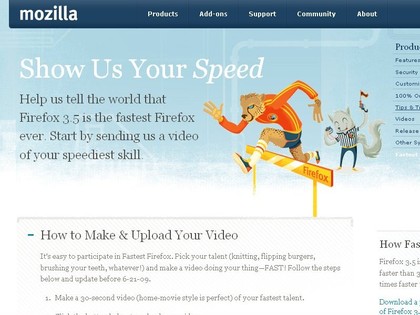Interview: The future of Firefox
Mozilla Europe President on its 'open innovation' approach
Sign up for breaking news, reviews, opinion, top tech deals, and more.
You are now subscribed
Your newsletter sign-up was successful
TR: It's a lot more competitive in the browser market now - with some big players pushing their wares - has that made things more difficult for Firefox?
TN: We think that a fair playing field - actual real competition - is good. Its good for consumers and this is exactly what we have done with the Firefox on desktop browser - re-established competition.
Now we see Safari and Google Chrome putting pressure on us and Microsoft getting back to the market with IE7 and IE8 - it's not comfortable for us as a browser vendor. It was easier to compete with a Microsoft that was asleep, but it's not the case any more. Now we have Google and we have Apple, and they are amazing competitors. Who in the market today would be prepared to take on Microsoft, Apple and Google? You'd have to be crazy. So, it's not comfortable for us, but it's good for the consumers.
This is true competition and it puts pressure on us and there has been a lot investment in the browser to make it more competitive in terms of speed and privacy.

TR: There is a lot of focus on the speed of browser now - why is there not more focus on security and stability?
TN: Speed is important although some people don't understand it yet. As we move apps into the browser there are limits to what the browser can do and the limits are on two items - the first item is speed; there are things we could do with the JavaScript engine but that we don't do because it would be too slow and unusable, and the user would close the window before it has finished loading.
As we are gaining speed it is going to enable these things. An example is the Google Suggest feature; at one point in time it was technically possible but too slow in reality, so it stayed unimplemented.
Sign up for breaking news, reviews, opinion, top tech deals, and more.
But now it is used daily by hundred of millions of people because we have the technology to make it usable. With increased speed it is going to make the things that are possible but unbearable into useful tools.
The second part is features; feature wise Firefox 3.5 is introducing open native video and audio. You actually have something that has been introduced with HTML 5 which is a video tag you can embed natively within HTML without resorting to plug ins like flash.
What is important is that you can interact between the page and the video itself. This means that, for example, you can inject stuff into the video that comes from the interaction on the page.
In the past you had to resort to a flash applet which is an island of information within the page but we're opening the gates of innovation. You need a fast JavaScript engine for something like video because it's not text, it's not a still image, it's something that is thousands of times more complex, with much more data to move within the script.
Current page: Competition and in-browser video
Prev Page Google Wave and mobile phones Next Page On IE8 and telling your relatives
Patrick Goss is the ex-Editor in Chief of TechRadar. Patrick was a passionate and experienced journalist, and he has been lucky enough to work on some of the finest online properties on the planet, building audiences everywhere and establishing himself at the forefront of digital content. After a long stint as the boss at TechRadar, Patrick has now moved on to a role with Apple, where he is the Managing Editor for the App Store in the UK.